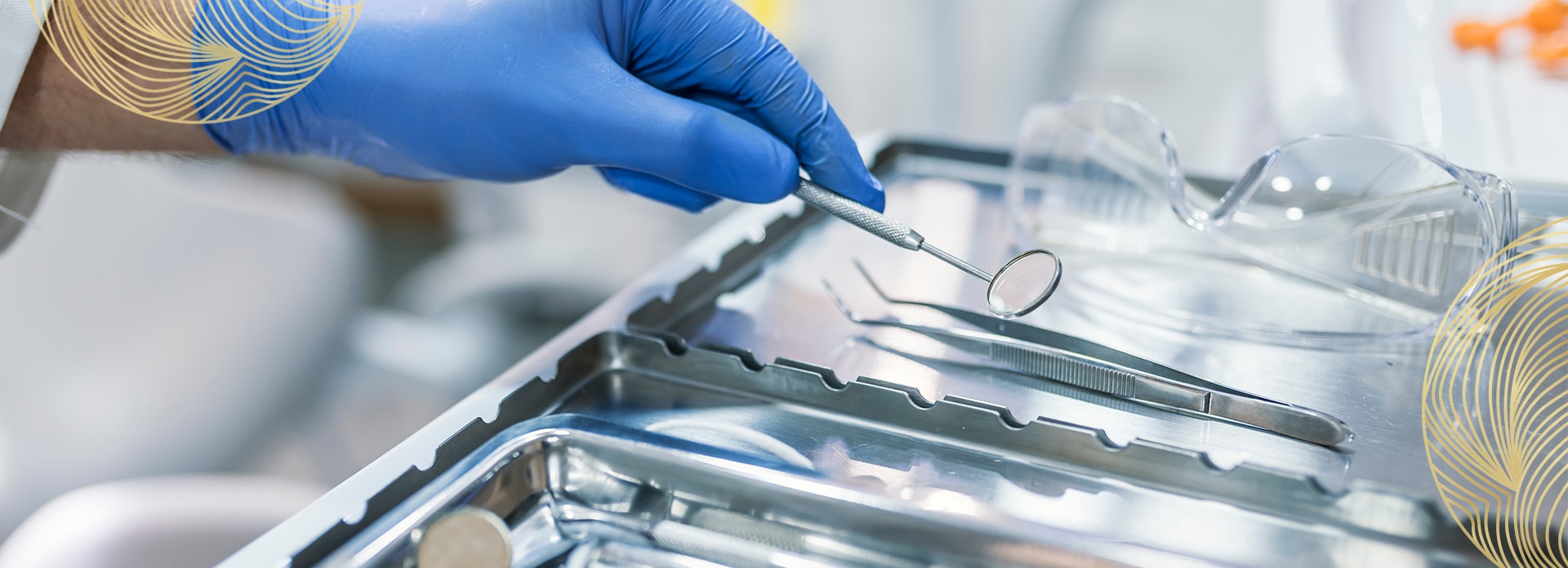Missing teeth can impact your oral health, how your jaw functions, and the appearance of your smile. There are multiple options to replace missing teeth, including dental implants, dental crowns, dental bridges, dentures and partial dentures.
Depending on the location and the cause of your missing teeth, your dentist will determine the right course of action to replace them.
The Impact of Missing Teeth
Your missing teeth can cause additional symptoms and disrupt your quality of life.
Oral Health Issues
When you’re missing teeth, you can develop additional oral health concerns that compromise the health of your other teeth, such as:
- Misalignment: Missing teeth can lead to neighbouring teeth shifting or tilting, causing misalignment issues and potentially affecting your bite.
- Gum disease: Gaps created by missing teeth can be havens for bacteria, increasing the risk of gum disease and infection.
Aesthetic Concerns
Gaps in your smile can cause concerns, including:
- Appearance: Missing teeth can impact your smile and facial appearance.
- Speech impediments: Gaps in your teeth can affect your ability to pronounce certain words and may lead to speech difficulties.
Chewing & Digestion
Your mouth is the start of your digestive system, and when there’s dysfunction in your bite, it can affect your whole-body health, causing concerns like:
- Reduced chewing efficiency: Missing teeth can make chewing difficult, leading to digestive problems and poor nutrition since food isn’t broken down into smaller particles making it easier to digest
- Dietary restrictions: People with missing teeth may avoid certain foods due to the difficulty of chewing or biting into things
Bone Loss & Facial Changes
Over time, missing teeth can impact the health of your jawbone. It can affect the strength of the bone and change the look of your facial features since the muscles around your face start to cave in when there is no tooth to support it. The most common bone issues associated with missing teeth are:
- Bone resorption: The absence of teeth can result in bone loss in the jaw, which then affects the future options for tooth replacement. For example, if an implant is going to placed in the site, a surgical bone graft may have to be done for the implant to be properly supported
Risk Factors for Tooth Loss
Some factors can make people more prone to tooth loss, including:
- Genetics
- Gum disease
- Trauma
- Tooth decay
- Smoking
- Chronic health conditions
- Poor oral hygiene
Treatment Options to Replace Missing Teeth
A range of restorative dental treatments are available to replace missing teeth, and your dentist can determine what solution is ideal for your oral health and budget.
Dental Implants
Dental implants are a restorative dental solution that mimics the natural structure of a tooth. Artificial tooth roots, typically made of titanium, are surgically placed in the jawbone to provide a stable foundation for replacement teeth. Once integrated in the jaw bone, a crown is attached to the artificial root.
Implants are popular for several benefits, such as:
- Long-lasting durability
- Preservation of bone structure
- No impact to adjacent teeth
- Restores the bite
Getting an assessment from your dentist before selecting a treatment is critical. Not all patients are candidates due to bone density, chronic medical conditions, oral health, or lifestyle habits.
Dental Bridge
A dental bridge is a fixed dental restoration that consists of one or more artificial teeth anchored to adjacent teeth. They can be used for one or a series of missing teeth and are a great alternative if a dental implant isn’t appropriate.
Bridges have many advantages. Dental bridges:
- Are a nonsurgical option fixed in place for stable durability
- Can help maintain the alignment of adjacent teeth
- Can be completed relatively quickly
Dentures & Partial Dentures
Dentures are removable dental prosthetics that replace a full set of missing teeth anchored in place by the suction of the mouth. Dentures can also be secured with multiple implants.
Partial dentures are removable dental appliances that typically include artificial teeth attached to a metal or plastic framework, which clips onto the remaining natural teeth for support and stability.
While dentures may seem like an old-school solution, they provide many benefits, including:
- Improved functionality for better chewing
- Noninvasive procedure
- Removable and versatile restoration option
- An economical option to replace multiple teeth at one time
Can All My Teeth Be Replaced?
It is possible to get a whole new set of teeth. Depending on the state of your oral health, your dentist can recommend an ideal treatment for you.
Dental implants are a fixed option, while dentures are removable. Often dentures with implants are the best option to replace all the missing teeth. When replacing teeth, especially your entire mouth, your dentist will also account for your budget before starting treatment.
Ways to Help Prevent Tooth Loss
Prevention is always better than treatment. Keeping your teeth and gums healthy can help you avoid tooth loss due to decay or periodontal disease. You can help keep all your teeth with simple lifestyle habits.
- Brush your teeth twice a day
- Floss daily
- Limit sugary or sticky foods that contribute to tooth decay
- Visit your dentist for regular exams and cleanings every 6 months

Visit Cooper Dental for a Restorative Dental Solution
Your dentist will determine what restorative option is right for you based on several factors, including:
- Oral health
- Bone density
- Medical history
- Lifestyle habits
- Budget
Visit us at Cooper Dental for a comprehensive consultation and address your dental concerns.




